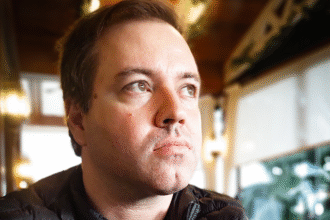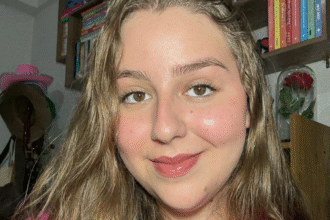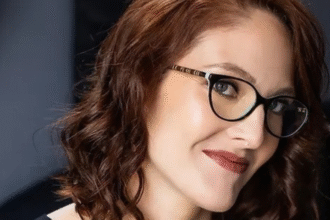Viviane Viana ‘s new book , ” Ah, se Graham Bell falasse !”, families find a playful resource to discuss the challenge of balancing the digital world and family interaction. The work, launched on the emblematic date of Telephone Day, offers a humorous and constructive reflection on the conscious use of smartphones, an essential but often abused tool in contemporary society. The work will be launched on March 10th.
In “Ah, se Graham Bell falasse!”, you address the topic of excessive smartphone use in a playful way for children. How did the idea to address this subject come about?
The idea came from observation. In restaurants, I’m struck by tables where children don’t talk or interact with each other. They keep an eye on the screens until the food arrives. Some of them are not even interested in the toy library. The last straw that made the idea come to fruition fell on the day I took my son to therapy. I was in the waiting room, reading a book, when another mother and her son entered. She didn’t even sit down properly on the couch and started making video calls with the sound turned up. So loud that the child himself complained and put his hands over his ears. Who needs therapy? That was the first question that came to mind, followed by many others about what generation we are forming, what values are being transmitted, what society we want to live in.
How do you believe parents can use the book as a tool to promote a healthier relationship with screens for their children?
The book addresses serious and important issues involving cell phone use, such as interpersonal relationships and respect for others, with humor. I used the rhyme to give it a playful sound and made the title a refrain that is repeated scene after scene, until Graham Bell, who is credited with inventing the telephone, gave his opinion on the current situation, in which smartphones have become almost an extension of the body itself. In the story, the cell phone is not the villain. The question that arises is moderation. The book can be a starting point for a debate, for reflection, but it is important to emphasize that we are talking about children’s literature, not a technical book or manual.
In addition to the book, what other strategies do you suggest for parents to deal with their children’s smartphone use in a balanced way?
Prohibition is certainly not the way forward. Smartphones are incredible multifunctional tools. It is therefore necessary to sit down and talk about it, establishing reasonable limits for the child or teenager and the responsible adult. Agreements, as the name suggests, must be agreed upon and must make sense to the members of the respective family. If the agreement is not to use your cell phone during meals, set aside a day to disconnect, not use screens an hour before bed or establish a daily amount of time to spend on social media, the important thing is that it is followed by everyone, especially those adults. In all cases, it is essential to set an example. And when we talk about children, we need to offer playful activities, enriching experiences outside the digital world.

How important is it to discuss issues related to the use of technology from an early age with children?
It is important to reflect on these issues from an early age with children so that they do not fall into extremes, so that they themselves impose limits on technology. The idea is to form critical and autonomous subjects. The flip side of obedience is disobedience. The aim is to provide elements that support discernment.
Could you share some of the key messages you hope to convey to parents and children through your book?
The main message is moderation in the use of screens and respect for those next to you. People forget that there are other people around and watch videos loudly, talk loudly, use the device at the cinema or theater and disturb their neighbors. We’ve reached a point where a voice or a text message – and I’m not referring to emergencies – gets more attention than a family member or friend sitting in front of us.
How do you see the role of children’s literature in educating children about complex topics, such as the excessive use of technology?
I understand literature, and not just children’s literature, as a space to better understand what is different; a place to expand repertoires. It dislodges preconceived ideas, makes them uncomfortable and opens up new perspectives on experiences. Reading increases our ability to be, to be human, to be empathetic, to understand that there are opinions and worldviews different from ours.
What are the main challenges parents face when trying to limit their children’s screen time?
If you ask parents this question, the answer will probably be that they need to work and that they are not with the kids all the time to control screen time. In my opinion, control is deception. Children need to understand that life is not inside a cell phone screen. Hence the importance of parental guidance. There is no point in telling your child or teenager to put down their cell phone all the time. This is exhausting and doesn’t solve it. It is necessary to talk, listen carefully, show the pros and cons so that the limits find a logical relationship with the risks associated with exaggeration and excessive use.
How do you hope your book contributes to awareness about the importance of setting healthy limits on technology use from a young age?
The making of children’s literature should not be, I believe, functional, directed. Therefore, when you ask me what contribution I hope the book will make, I hesitate in answering. I hope that the children have fun with the situations, remember similar experiences, give new meaning to the experiences and that they and the adults find in the catchphrase “Ah, if Graham Bell could talk!” a fun strategy when someone breaks an agreement at home, for example. Because these slip-ups will inevitably happen. After all, habits are not changed in the blink of an eye.
Follow Viviane Viana on Instagram





